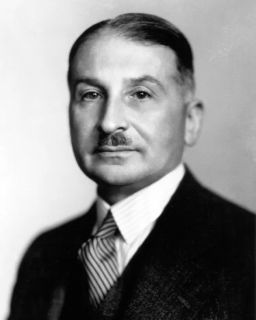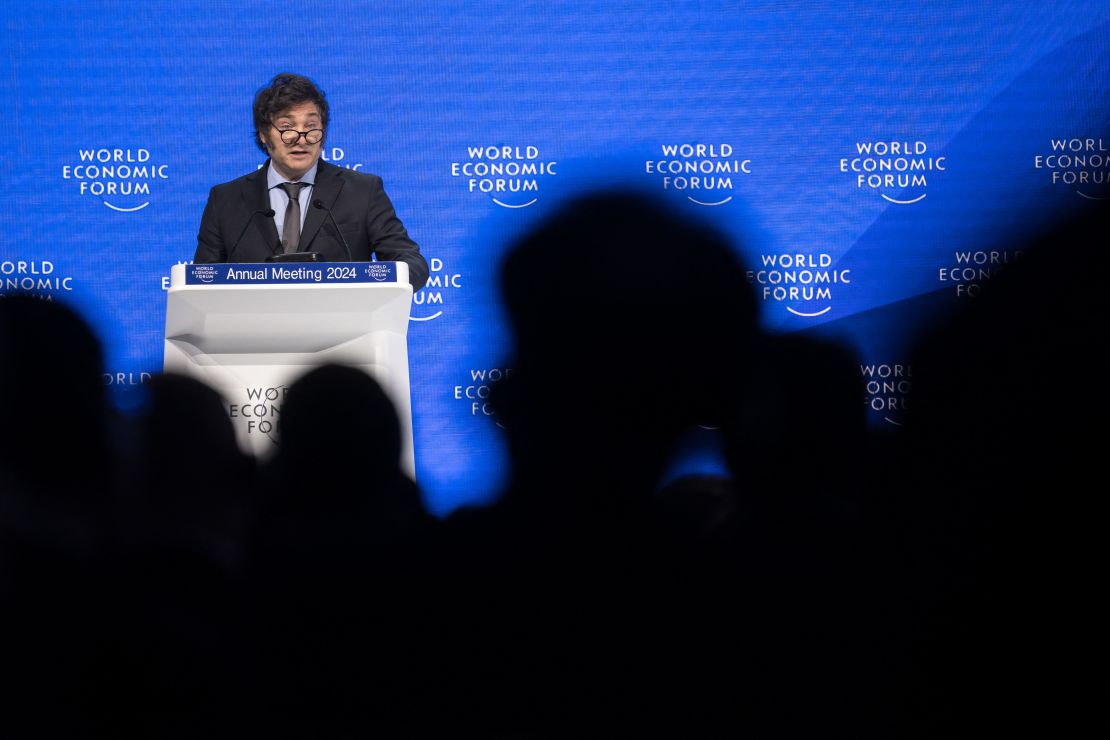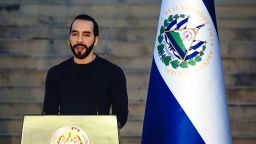Brazilian UFC fighter Renato Moicano had just rallied back from an early-round beating to win a lightweight bout this month when he grabbed a mic to shout out his favorite economist.
“I love private property and let me tell you something, if you care about your country, read Ludwig von Mises and the six lessons of the Austrian economic school,” Moicano, his cheekbone bloodied, roared, along with a pair of profanities.
Footage of the mixed martial artist’s tribute soon went viral on social media, where many in the United States were quick to comment on the seemingly bizarre incongruity of the scene.
But for those with their fingers on the pulse of Latin American politics, it likely appeared far less surprising. Because in South and Central America, the Austrian-American laissez-faire champion Mises, who died in 1973, is having something of a moment.
In recent years, the free-market economist and the contrarian Austrian school he led midcentury have been turned into a hashtag deployed by tax-wary workers. A rash of think tanks and media influencers who champion his ideas have consolidated his influence. And in El Salvador and Argentina, Mises’ ideas have made their way into the speeches and policies of presidents.

“Ludwig von Mises is Latin America’s leading economist,” declared the headline of a Bloomberg opinion piece earlier this month by economist Tyler Cowen.
The one-time principal economic adviser to the Austrian government, Mises fled his homeland in 1934 to escape the growing Nazi reach, eventually settling in the US, where he became a professor at New York University. His free-market policy prescriptions, framed by an economic thinking centered on human behavior and individual choice, were widely considered out of fashion at the time.
But his strident rejection of socialism has found a foothold in places like Brazil, where a “Less Marx, More Mises” movement has swelled over the past 15 years in a backlash to the ruling center left party, propelled by the growth of social media and a series of corruption scandals, according to Camila Rocha, a?political scientist and researcher at the Brazilian Center of Analysis and Planning.
The movement is especially popular among young male students and low-income workers such as Uber drivers and street vendors “who started feeling and thinking like entrepreneurs” and “don’t want to pay taxes anymore,” she said. Moicano has said he began studying economics after facing taxes on his first UFC winnings.
In 2015, the “Less Marx, More Mises” slogan made its way onto the posters brandished by protesters in Brazil’s massive right-wing demonstrations, which foreshadowed the rise of former President Jair Bolsonaro, who would later embrace the libertarian flank.

From Mises to Milei
Today, many experts believe the Austrian school may have no greater sway than in Buenos Aires, where President Javier Milei, himself a libertarian economist, retweeted a viral clip of Moicano’s rant.
After reading Mises for the first time, Milei felt “superlative conceptual clarity,” he recalled in a 2017 interview. “Milei considers Mises to be among the greatest economists in history,” said Daniel Raisbeck, a policy analyst at the libertarian Cato Institute.
Since taking office in December, the wild-haired leader has pushed for wide deregulation. While many of his proposals have been blocked by the country’s congress, his government achieved fiscal parity this year with a robust and controversial set of cuts, including shutting down the Argentina national press agency and reducing aid to soup kitchens.
Milei’s elimination of rent controls and price controls could be interpreted as harking back to Mises, Raisbeck said, pointing to the Austrian’s thinking that “freely determined prices provide the vital information without which economic calculation becomes impossible.”
But the idea has also been espoused by free market economists outside the Austrian school, like Milton Friedman, (after whom one of Milei’s dogs is named), Raisbeck said.
Instead, Raisbeck said, Mises’s fingerprints might be clearest in Milei’s anti-socialist rhetoric, like his January speech before the World Economic Forum in Davos, where he argued the West had to be wrested back from leaders “co-opted by a vision of the world that inexorably leads to socialism and thereby to poverty.”
Mises-watchers also see strands of the economist’s thinking in the policies pushed by El Salvador’s President Nayib Bukele, another buzzy right-winger upending the Latin American political scene.

Remarks from Bukele earlier this year to the Conservative Political Action Conference outside Washington were awash in “language familiar to the Austrians,” reads a blog post on the website of the Mises Institute, a non-profit promoting the economist’s teachings.
Rocha, the Brazilian researcher, highlights local offshoots of the Mises Institutes and other libertarian centers as being “very skilled at disseminating their ideas to a broader audience in?Latin America.”
Still, few mentions of Mises seem to have had as big an impact on the mainstream in recent years as Moicano’s: as the clip went viral, Google search interest for the economist hit its highest since 2016, according to the company.
The fighter’s salute to Mises led to a live TV interview on Fox Business and a nearly nine-minute celebration from Ben Shapiro, the right-wing commentator whose YouTube videos can rack up millions of views. “That is my jam!” Shapiro said of the Austrian school.
It’s also driven traffic toward Moicano’s YouTube channel and a new podcast, which might be considered no bad thing in the mind of a free-market capitalist.
“If you start to understand the concept of the Austrian economic school,” Moicano said in a recent YouTube video, “you’re going to understand that’s what I need: free market, liberties, and wealth, my brother. That’s the whole thing.”


